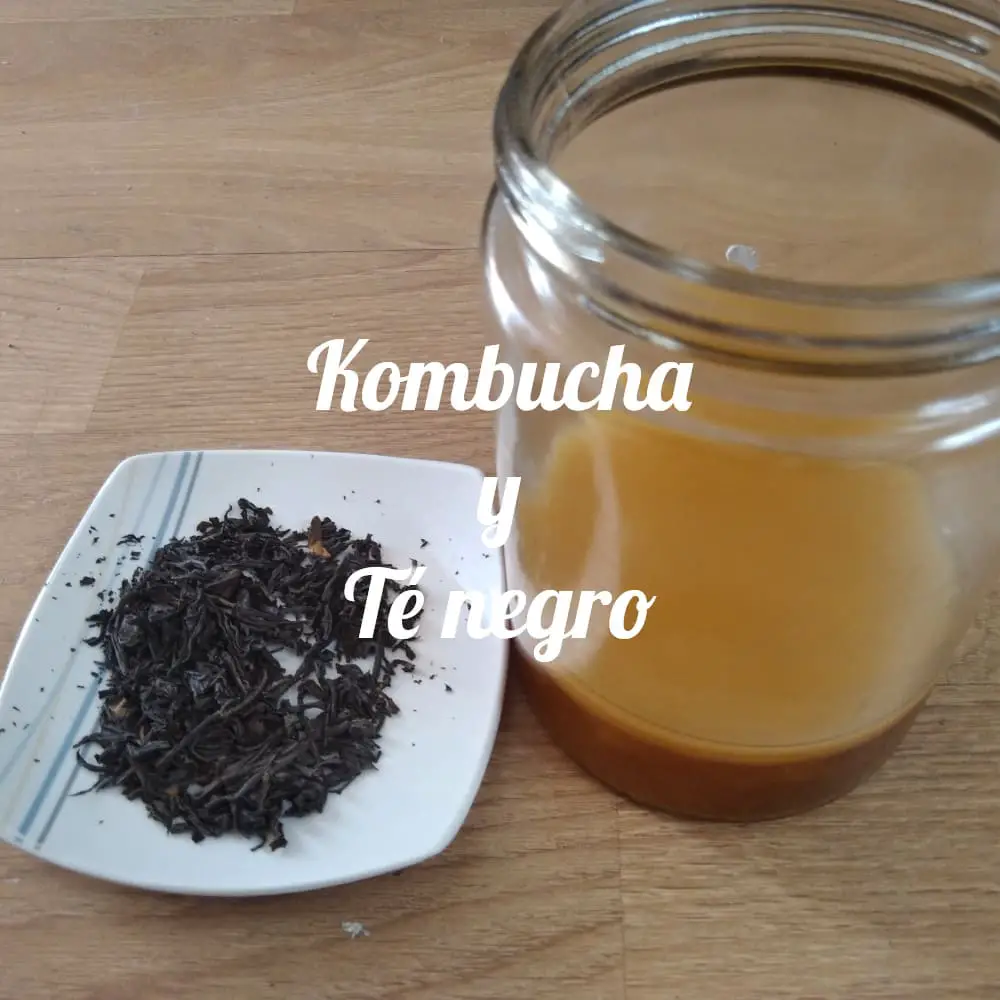Both drinks have stood out for their healing and health-promoting properties, both kombucha and black tea show several benefits that are somewhat similar, but in some cases the use of one is more effective than the other.
These differences are given by the composition of both drinks, some components of kombucha usually vary depending on the fermentation time, microorganisms used or combinations with other substrates such as green tea or black tea itself.
They have preventive effects in some diseases of great importance such as diabetes, heart disease, stroke, among others.
Its main protective effect is due to its flavonoid content, kombucha and black tea can maintain the integrity of tissues throughout the body thanks to its content in catechins and polyphenols, giving that famous antioxidant capacity.
The health benefits will vary depending on the amount of these, but equally the other nutrients offered by these drinks can compensate and facilitate the functionality of different organ systems, preventing in turn the development of diseases. [1]
Which of the two samples has the highest antioxidant capacity?
During the fermentation of black tea leaves, compounds with oxygen free radical scavenging properties are released and kombucha is characterized by a greater amount of antioxidant and other components (minerals or organic acids) that help maintain and protect tissues.
Black tea shows a great antioxidant capacity due to the presence of polyphenols in it, but kombucha during fermentation can increase the amount of these, which makes it present a greater antioxidant capacity compared to black tea. [2] [3]
For this reason, it is sometimes considered to prolong the fermentation time of kombucha, even so, it is not recommended since in turn the levels of organic acids are increased, so that the drink becomes excessively acidic and incompatible with life if it is consumed.
Green tea also has a greater antioxidant capacity than black tea, therefore, if used as a base to prepare kombucha it can further enhance its antioxidant properties. [2]
How are the antimicrobial properties of kombucha and black tea?
The fermentation capacity is what gives the antimicrobial properties of the different types of tea, black tea shows a narrower antimicrobial spectrum compared to kombucha, this being the most effective in the control of pathogens. [4] [5]
Kombucha tea shows a wide antimicrobial capacity that affects both gram (+) and gram (-) bacteria, fungi and parasites, affecting important pathogens such as Helicobacter pylori (cause of peptic ulcer), Escherichia coli (cause of common diarrhea), Staphylococcus aureus, Salmonella typhimurium, Salmonella enteritidis, Leuconostoc monocytogenes, Yersinia enterocolitica, Campylobacter jejuni, Candida albicans, among others.
Its antimicrobial properties are given by organic acids (acetic acid), catechins and some antibacterial substances produced by probiotics.
Black tea in high concentrations could have a bactericidal effect on dental pathogenic microorganisms but its capacity is even lower than that of green tea. [4]
In studies where kombucha is prepared with both teas, a greater antimicrobial capacity was demonstrated in combination with green tea compared to kombucha prepared from black tea. [4] [5]
What benefits do they show in the cardiovascular system?
In several studies it was shown that black tea decreases the risk of cardiovascular diseases, this also by controlling the levels of triglycerides, polyphenols, and blood pressure. Kombucha, on the other hand, shows benefits in myocardial infarction, although this has only been demonstrated in mouse models.
It was found that drinking black tea regularly significantly decreased cardiovascular diseases, drinking 3 or 6 cups a day improved the antioxidant status of the body, although if that limit is exceeded it can be dangerous.
Also, black tea reduces low-density lipoprotein cholesterol levels in people with hypercholesterolemia. [6] [7] [8]
Kombucha has a protective effect on myocytes (cardiac cells) stabilizing cell membranes and reducing myocardial inflammation, in addition to decreasing uric acid levels that is considered a predisposing to myocardial infarction.
These kombucha studies have only been demonstrated in mice, so more evidence is needed to confirm whether these benefits may exist in humans. [9]
Kombucha and Tea in Weight Loss
Black tea and kombucha help decrease obesity by improving cholesterol levels in obese people. Also in studies conducted in diabetic mice was found the possibility of reducing weight loss in diabetic patients. [10] [11]
Black tea plays an important role in weight loss thanks to its content in polyphenols that increase lipolysis thus reducing the accumulation of fat in the tissues. These are more effective than green tea polyphenols.
They also reduce the absorption of lipids and complex carbohydrates, in addition to suppressing the digestion of other nutrients. [10] [12]
Other studies have shown that both drinks reduce weight loss in diabetic rats, although kombucha may be influenced by the substances in the black tea with which it was prepared.
It was also found the possibility that kombucha prepared with green tea shows its antidiabetic properties with greater insulin sensitivity and decreased glycemia, also by reducing cholesterol levels and decreasing body weight. [12]
Although these studies have not yet been conducted in humans, it does not rule out the possibility of presenting these benefits as well.
How can they help in cancer prevention?
The polyphenol content is usually responsible for controlling angiogenesis and proliferation of tumor cells. While there are more studies that corroborate the effects of black tea against cancer, some benefits have been shown after the consumption of kombucha, although the tests are done in animals and there is nothing studied in humans. [13] [14]
Theaflavins in black tea exert a chemoprotective action against hormone-dependent breast tumors, can also regulate the growth and metastasis of cancer cells, in addition to increasing apoptosis (cell death) in these.
It was shown that black tea leaves contain a series of bioactive components, such as polyphenols, amino acids, volatile compounds, and alkaloids, which have the ability to control several diseases affecting several pathogenic mechanisms of these. [13] [15]
In contrast, kombucha has effects against the angiogenic capacity of tumor cells, also shown in a study to significantly reduce the survival of prostate cancer cells by inhibiting expression of angiogenesis stimulators. [14]
This and other studies suggest that kombucha may be useful for the treatment and prevention of some cancers.
Its anticancer properties may be due to the presence of polyphenols and other products obtained from the fermentation of tea (black or green tea), acquiring several of its anticancer properties, but as always, they are required in human studies to prove this. [16]
Can they be useful in diabetics?
Both drinks show excellent antidiabetic effects, not only because they are non-sugary drinks or with very low sugar levels, but their components have beneficial effects in the control of the pathogenic mechanisms of diabetes.
Black tea lowers blood glucose levels, improves insulin sensitivity, improves the ability to metabolize sugar. Tea catechins improve insulin status and some studies have shown it to improve postprandial blood sugar levels in normal and prediabetic adults. [17] [18]
Studies with kombucha in diabetic mice showed that it induced curative effects on liver and kidney functions, and other studies revealed that, compared to black tea, it was a better suppressant of blood glucose levels.
There was also a marked delay in the absorption of LDL (low-density lipoprotein) cholesterol and triglycerides and a significant increase in HDL (high-density lipoprotein) cholesterol. These results, although not proven in people, makes kombucha considered as a possible remedy for the treatment and prevention of diabetes. [19]
In conclusion, both are food elements that have a positive influence on our body, and although kombucha promises to be better or increase these benefits that tea consumption brings, there is very little or no research in humans, which contrasts with all the research that has been done on tea in people.
For now, we leave this comparison between kombucha and black tea here, but you are invited to continue informing yourself about the world of kombucha and fermented with the following articles.

